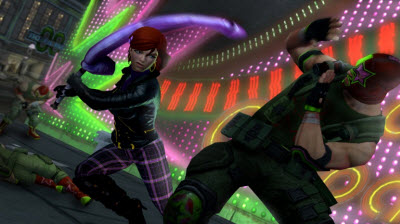
THQ said it is the process of moving its focus away from licensed kids titles and movie-based games. And it also decided to discontinue making games on its long-running MX vs ATV racing game series, resulting in the closure of two game studios in Australia and the elimination of a team in Phoenix. That shows what happens to a medium-size game company when a few of its major titles turn out to be duds.
[aditude-amp id="flyingcarpet" targeting='{"env":"staging","page_type":"article","post_id":318602,"post_type":"story","post_chan":"none","tags":null,"ai":false,"category":"none","all_categories":"games,","session":"C"}']At the same time, by not cutting back on its big effort in Facebook and mobile games, the company made a statement about its commitment to the new game industry. This fall, the company still plans to release Margaritaville Online, a Facebook game based on the classic Jimmy Buffett song. THQ said that a variety of digital gaming efforts will accompany the launches of its more traditional games as well. If you’re a game developer, it’s clear that the writing on the wall says there will be fewer jobs in console games and more in mobile and social games.
Last month, THQ chief executive Brian Farrell said his company had to rethink its strategy about investing in traditional games and had to behave more like a startup in an age of digital disruption. He noted, for instance, that iOS games looked like a more attractive development target than the traditional Nintendo or Sony handhelds.
But before it can invest in a lot of new digital, social and mobile games, the company has to rightsize itself. THQ will now have five internal development studios that focus on particular initiatives. The company has opened a new studio in Montreal, headed by Ubisoft veteran Patrice Désilets; it also owns Volition, which developed Saints Row the Third (pictured at top) and inSANE in conjunction with film director Guillermo del Toro; Relic Entertainment, creator of Company of Heroes and Warhammer 40,000: Space Marine; Vigil Games, maker of Darksiders II and Warhammer 40,000: Dark Millennium Online, which is a major massively multiplayer online game; and THQ San Diego, maker of WWE All Stars and other fighting games.
Clearly, THQ is sticking with its hit makers and is abandoning studios and franchises that are in decline. Where will all of those people get jobs? Clearly, the likes of Zynga and other social and mobile game makers are hiring. And THQ itself is hanging on to the people who can make mobile, social and digital online games as well. If it doesn’t, it won’t have much of a future.
